Local restaurant owners react to proposed ballot question to increase service wage, create tip pool
| Published: 03-28-2024 4:50 PM |
Franklin County restaurant owners have mixed feelings about a proposed ballot question that would increase service wages for tipped workers and allow businesses to create a tip pool for all employees, supporting the concept but worried about the impact it would have on their bottom lines.
“Philosophically, I think that everybody should get a living wage,” said Mark Wisnewski, one of three owners of The Rendezvous in Turners Falls. “Practically, I am very worried about it. My actual workers are very against it, from what I have heard.”
A special legislative committee looking at questions proposed for the November ballot heard arguments on the initiative referendum proposal last week.
One Fair Wage, a national organization of restaurant and service workers, is sponsoring the question in Massachusetts. The group is looking to increase the service wage from $6.75 an hour to $15 by January 2029 and still allow workers to collect tips. Currently, tipped workers are expected to make $15 an hour, with tips covering the difference between the service and minimum wage. If a worker cannot reach this benchmark through tips, the employer is responsible for paying the difference.
Mikey Knab is the national director of High Road Restaurants, a national restaurant association group supporting One Fair Wage’s efforts in different states. He said service wages can lead to workers experiencing sexual harassment to make basic income, wage theft and poor working conditions.
“We’re trying to push policies that ensure the restaurant industry does not continue to suffer some of the lowest profit margins, high failure rates and super high turnover rates,” Knab said.
In Massachusetts, any employee who makes more than $20 a month in tips can be considered a tipped worker regardless of their industry. Knab said that the existing law around service wages is contributing to “tip creep” — a term describing the recent expansion of tips into other industries besides full-service restaurants. He added that setting a standard wage across all industries could eliminate that.
“Now all of a sudden every business turns the thing around to pay and asks for a tip,” he said. “Why wouldn’t every industry adopt this same system? The way the law is now, it doesn’t stifle that at all. It doesn’t disincentivize that.”
Article continues after...
Yesterday's Most Read Articles
 Police report details grisly crime scene in Greenfield
Police report details grisly crime scene in Greenfield
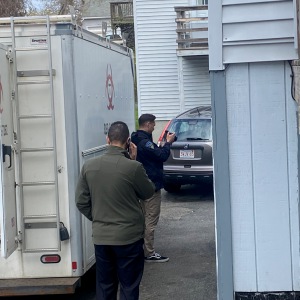 Authorities ID victim in Greenfield slaying
Authorities ID victim in Greenfield slaying
 State records show Northfield EMS chief’s paramedic license suspended over failure to transport infant
State records show Northfield EMS chief’s paramedic license suspended over failure to transport infant
 New buyer of Bernardston’s Windmill Motel looks to resell it, attorney says
New buyer of Bernardston’s Windmill Motel looks to resell it, attorney says
 On The Ridge with Joe Judd: What time should you turkey hunt?
On The Ridge with Joe Judd: What time should you turkey hunt?
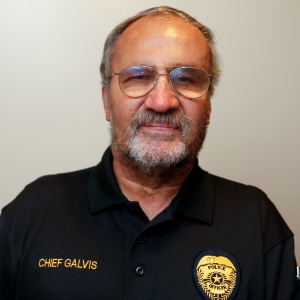 Ethics Commission raps former Leyden police chief, captain for conflict of interest violations
Ethics Commission raps former Leyden police chief, captain for conflict of interest violations
Seven states — California, Oregon, Washington, Nevada, Minnesota, Montana and Alaska — require workers to be paid a full minimum wage with tips on top. Washington D.C. passed similar legislation in 2022 to raise the service wage from $5.05 an hour to its minimum wage of $17 by July 2027. Chicago voted to eliminate the service wage in October 2023.
Wisnewski said his workers already make a decent wage without this measure. Their hourly base wage is $6.75 and with tips, they can make around $23 to $24 an hour.
“Because the staff makes such a good wage, we have very qualified staff. If the staff were to make less money, we would probably not have as qualified people working in the industry,” he said.
Luke Eriksen owns Wild Roots Eatery, which has locations in Greenfield, Sunderland and Northampton. Eriksen said his full-time employees are paid $17 an hour with tips, which can bump their hourly wage to $23.
“We just felt like if we could do it, we should do it,” he said. “We’ve been in business for seven years. Leading up to COVID and then through COVID we just really reevaluated the cost of living.”
Eriksen said the decision to pay his employees more than the minimum wage came after they opened up other locations. They wanted to ensure quality and good customer service across all locations.
“We know it’s a business rule of thumb that if you take care of somebody, they’ll take care of you. Take care of your employees and they’ll take care of your customers,” he said. “Everyone needs to feel ownership and everyone needs to feel safe and secure and financially sound.”
Wisnewski said if this ballot question passes, he would have to increase The Rendezvous’ menu prices by 30-50%.
“I know people think prices are only gonna go up by 15% to 20% because that’s how much they tip, but that’s not exactly true for a number of reasons,” Wisnewski said.
Another aspect of this potential ballot question is the creation of a pool to share tips amongst all workers. Currently, Massachusetts only allows tip pooling for wait staff, service bartenders and other service employees, but not kitchen staff.
Knab said the wage disparity between the front and back of the house can be “heartbreaking.” He added that tip pooling between all workers can reduce racial wage disparities, since service workers are more likely to be white people and workers who work in the back are more likely to be people of color.
“Trying to find a way to smooth out the wage disparity from the back of the house to the front of the house is critical for our industry to move forward,” he said.
Eriksen added that he has heard stories from his kitchen staff about how at previous jobs they earned minimum wage while the waitstaff would make $400 a night. He said the practice is “not fair.”
“I understand for waitstaff how [tip pools] are bothersome,” he said. “But here’s the reality. You don’t get that tip without the chef. You don’t get that tip without the dishwasher. You don’t get the opportunity to wait and serve this food without the kitchen staff in the back. It’s a full team effort.”
The Legislature has until May 1 to act on this ballot initiative. Otherwise, the campaign will need to collect another 12,429 voter signatures and file them with local officials by June 19, then the Secretary of State’s Office by July 3 for the question to appear on the November ballot.
Tanisha Bhat writes for the Greenfield Recorder from the Boston University Statehouse Program.

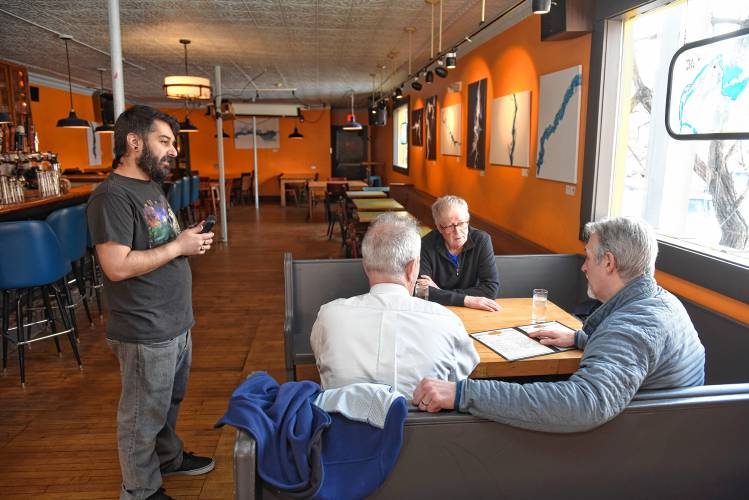
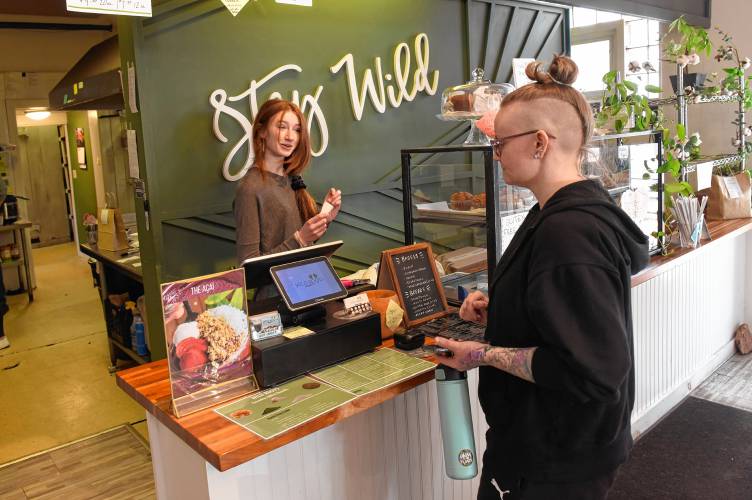
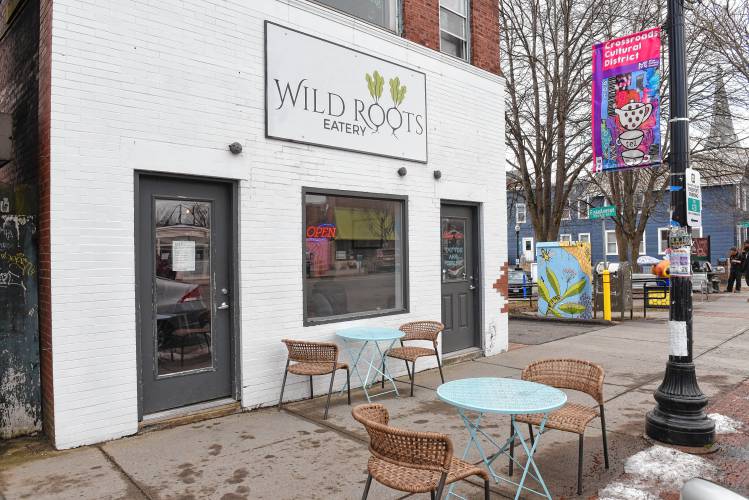
 What are the protocols for emergency transport of infants?
What are the protocols for emergency transport of infants? Frontier Regional School students appeal to lower voting age
Frontier Regional School students appeal to lower voting age
